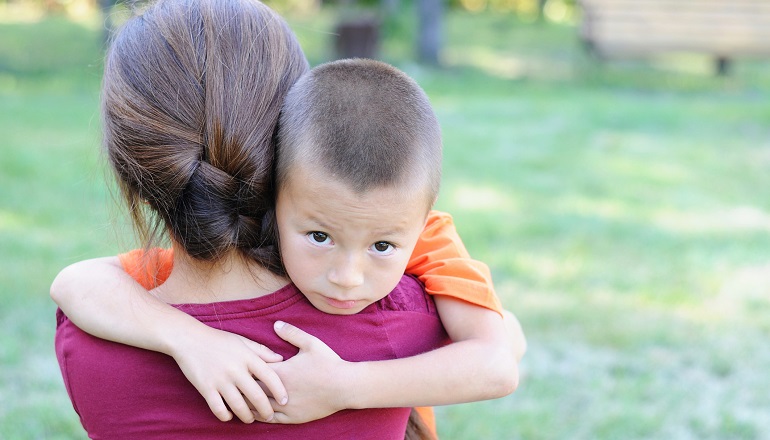1. Find out what information your child is getting. Start discussion by asking, “What are the kids at school saying about. . .?” Give him factual information to dispel rumors. Monitor his exposure to television reports so that he is not watching repeats of the same violent images. Explain events he sees on the news.
2. Acknowledge your youngster’s feelings. Say, for example, “You feel scared that the building was blown up.” Or, “You’re sad because so many people were killed.” If your child appears unaffected, ask tentatively, “I’m wondering if you feel sad that so many people were hurt?” It is also helpful to acknowledge your own feelings. “I was terrified when I heard about the attack, because Uncle John works in New York City.”
3. Offer tools to help your child cope. Tell her how you are coping. “I am so upset, I am going to sit in the garden and absorb the peaceful feelings there.” Suggest ways she can calm herself. “If you’re feeling sad, you can ask for a hug, we can go for a walk, or you can draw a picture of how you feel.”
4. Talk about the situation. Be honest and careful about what you say. Give your child information he can understand, and put the event in context. Explain that, even though frightening things happen to children once in a while, most children go about their days with no harm. Don’t describe unlikely scenarios that would unnecessarily frighten him. However, don’t avoid the topic, since kids know when something is going on.
5. Reassure your child. Tell her what you and others are doing to ensure her safety, inlcuding the daycare provider or teacher. Review safety precautions and practice routines. Tell your child what he can do to enhance his own safety. For example, tell him to go to an adult whom he trusts if he ever feels threatened.
6. Provide extra emotional support. Understand that children of different ages react differently. Younger children may show separation anxiety when you leave them at school. Older children may present a tough exterior or act out aggressive behavior. Teens may need you to listen as they analyze what happened.
7. Limit your child’s exposure to violent television, movies, videos, and computer games. Research has found that children who watch a lot of violence feel less safe than those who watch little or none. Prolonged exposure to violence increases children’s tolerance for violence.
8. Be aware of the events in your child’s life that may make her especially fearful. Children who have experienced a traumatic incident, who are grieving a personal tragedy, or who are ill, are more susceptible to anxiety.

